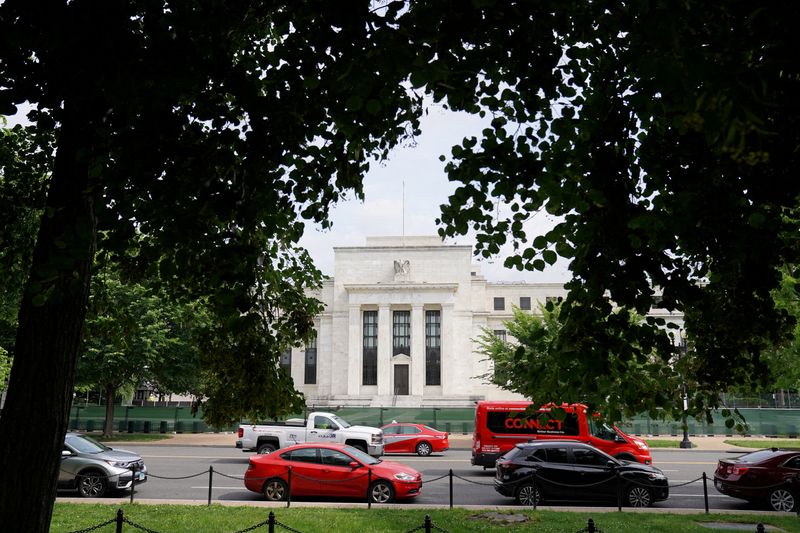By Karin Strohecker and Sumanta Sen
LONDON (Reuters) – The global monetary easing cycle ground along in October, with central banks across developed and emerging economies lowering interest rates ahead of the year’s biggest geopolitical event, the U.S. election.
Three of the four central banks overseeing the 10 most heavily traded currencies that held meetings in October lowered benchmarks. Central banks in New Zealand and Canada each shaved 50 basis points off their interest rates while the European Central Bank delivered a 25 bps cut.
Japan left rates unchanged while the U.S. Federal Reserve as well as central banks in Australia, Switzerland, Norway and the UK did not hold rate-setting meetings.
Attention has now moved on to how deep and how long the rate-cutting cycle across developed markets will be.
The U.S. election results could play a key role in shaping U.S. and global monetary policy going forward, with the Fed widely expected to cut rates by 25 bps on Thursday.
Democrat contender Kamala Harris is seen as broadly maintaining the status quo in terms of growth and inflation in the world’s largest economy. Republican candidate Donald Trump had pledged to ramp up trade tariffs, likely sparking a tit-for-tat trade war, which would probably be inflationary and limit rate-cutting potential.
Across emerging markets, 13 of the Reuters sample of 18 central banks in developing economies held rate-setting meetings in October. Six of them delivered cuts, with China, South Korea, Thailand, the Philippines and Chile trimming benchmarks by 25 bps each and Colombia lowering by 50 bps. Russia was the sole emerging market central bank to hike, upping rates by 200 bps, while the remaining six kept rates unchanged.
Emerging market central banks had frontrun their developed market peers in the latest rate-cutting cycle. Recent easing by developing nations’ policymakers had bolstered emerging market bonds this year, analysts said.
“We think those rate cuts may soon be paused,” Jean Boivin, head of the BlackRock (NYSE:BLK) Investment Institute said in a note to clients.
The latest moves in emerging markets took the tally of cuts since the start of the year to 1,710 bps across 42 moves – outstripping last year’s total of 945 bps of easing.
Total (EPA:TTEF) hikes so far in 2024 stood at 1,300 bps.



